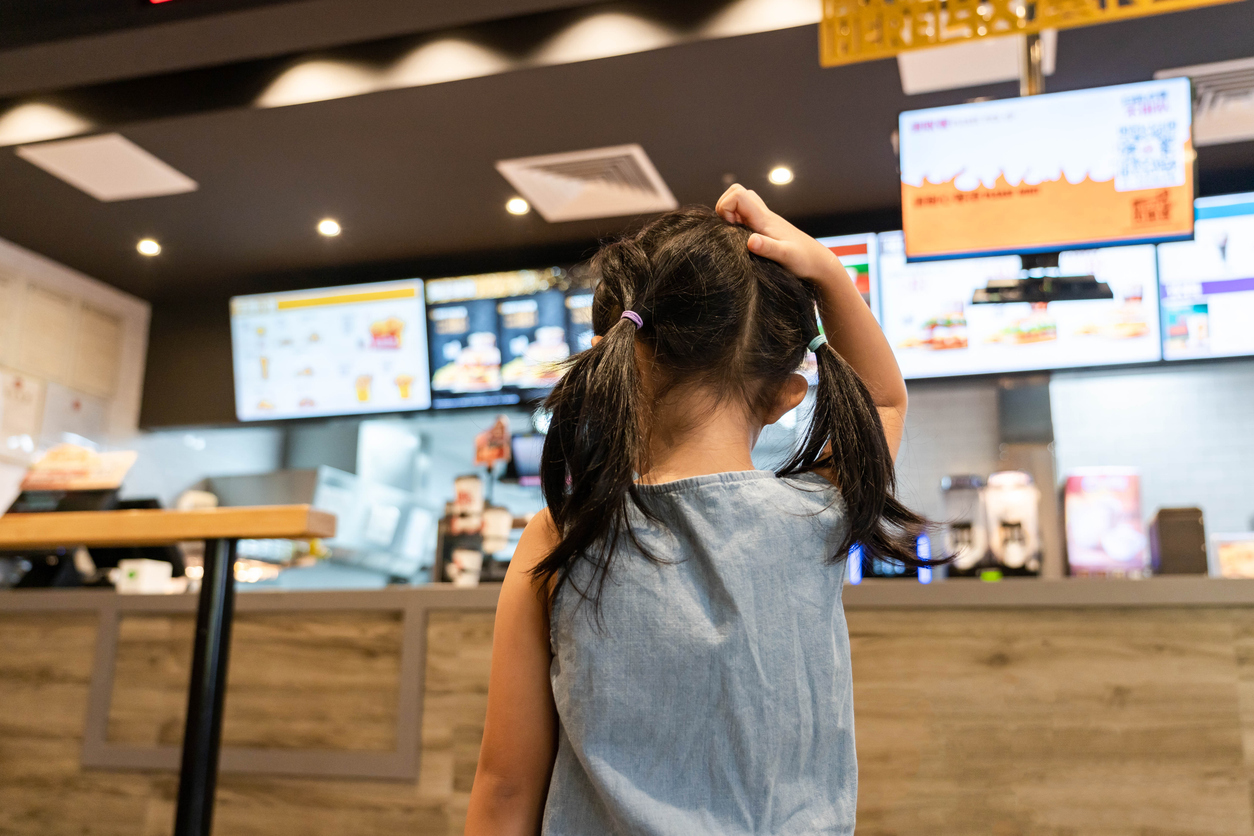A restaurant's inventory tracking, order administration, and transaction processing are all handled by the point of sale (POS) system. Operations are streamlined, improving productivity and customer support. POS systems are at the heart of most restaurant operations and can help brands manage payments, ordering, and customer data. By enabling restaurants to adapt to shifting consumer behaviors and new industry demands, the POS helps restaurants stay competitive in a tech-driven environment.
What Is A POS System In A Restaurant?
Restaurants use Point of Sale (POS) systems to handle transactions, order fulfillment, and inventory control. It monitors sales, makes menu changes easier, and improves invoicing accuracy. By integrating with payment options, analytics, and kitchen displays, point-of-sale (POS) systems improve order efficiency and customer service while streamlining operations. By centralizing data for sales reports, inventory control, and client preferences, they maximize resource allocation and decision-making. In the end, point-of-sale (POS) systems improve restaurant operations' overall efficiency and administration by facilitating more seamless workflows and better customer experiences.
What Components Make Up A Restaurant POS System?
In order to ensure smooth operations and excellent customer service, restaurant POS systems are made up of point-of-sale terminals (registers), software and interfaces (for order processing), hardware components (computers, tablets), and peripheral devices (printers, card readers). Together, these components handle transactions, organize orders, manage inventory, and process payments.
Point-Of-Sale Terminals (POS Terminals)
Restaurant transaction processing revolves around point-of-sale (POS) terminals, which are usually tablets or touchscreen displays. They facilitate order entry, table management, and payment processing. They act as the primary interface, allowing employees to efficiently communicate between the restaurant floor and the POS system, manage inventory, and precisely submit orders for flawless service.
Software And Interface
Restaurant point-of-sale software is responsible for managing orders, inventory, and payment processing. Staff members may quickly enter orders, alter menus, and traverse the system with ease because of its user-friendly interface. Sturdy software guarantees smoother operations and better service delivery by providing real-time updates, comprehensive reporting, and customization choices.
Hardware Components
Receipt printers produce customer bills quickly, and cash drawers safely store cash. The main order entry interface is a touchscreen monitor. They smoothly integrate to optimize restaurant operations by streamlining transactions, guaranteeing billing accuracy, and enabling effective staff-to-POS system communication.
Peripheral Devices
Card readers and other peripheral devices process payments quickly, giving customers convenience. Barcode scanners expedite order processing by streamlining inventory management. Instantaneous order relay to chefs via Kitchen Display Systems lowers mistakes and increases kitchen productivity. When used in tandem, these add-ons enhance point-of-sale capabilities and streamline restaurant operations for higher accuracy and service standards.
Benefits Of Implementing A POS System In A Restaurant
The installation of a point-of-sale (POS) system improves restaurant productivity by decreasing order processing mistakes and improving inventory control. By providing quicker service and more precise order handling, it improves customer connections and eventually maximizes operational efficiency.
Improved Efficiency And Speed
By automating order processing, decreasing manual errors, and speeding up transactions, point-of-sale (POS) systems simplify restaurant operations. They expedite table rotation, improve order accuracy, and simplify inventory control. POS systems improve the overall efficiency and speed of restaurant operations by facilitating informed decision-making through integrated reporting and analytics.
Enhanced Accuracy And Order Precision
By centralizing order entry, point-of-sale (POS) systems reduce manual errors in order taking and transmission. They guarantee accurate adjustments, like specific requests or menu changes, enhancing accuracy. For a more accurate dining experience, use real-time order updates and automatic computations to further improve accuracy by reducing invoicing and order fulfillment errors.
Inventory Management And Cost Control
POS systems immediately update stock levels with each sale, enabling real-time inventory tracking. Companies learn about quickly selling products, which helps them avoid shortages or excess. Accurate stock and sales data makes it easier to make well-informed purchases, which reduces waste and maximizes inventory levels for profit.
Customer Relationship Management (CRM)
Restaurant POS systems support CRM by keeping track of consumer information such as preferences and past purchases. This makes it possible for loyalty programs, focused promotions, and individualized service. Analyzing purchasing trends enables businesses to better personalize their services, which in turn promotes deeper connections, more satisfied customers, and the development of long-lasting partnerships.
Data-Driven Decision Making
Peak hours, popular items, and sales trends can all be found in POS-generated data. It supports pricing plans, personnel modifications, and menu optimization. Restaurants can better allocate resources and increase revenue by tailoring promotions and menu offers with the support of consumer behavior analysis and strategic planning.
Faster Payment Processing
POS systems integrate several payment methods, such as card, mobile, or contactless payments, to facilitate quick and safe transactions. They expedite processes, guarantee quick checkouts, cut down on wait times, and raise customer satisfaction. Diverse preferences are catered to via flexible payment alternatives, which also provide simplicity and security, improving the whole dining experience.
Table And Order Management
POS systems make table management easier by tracking orders as they go from the kitchen to the service area and allocating them to designated tables. By notifying personnel when tables are ready, they maximize table turnover and reduce wait times. For a better dining experience, real-time updates on table status guarantee effective seating, order delivery, and quicker service.
Considerations When Choosing A POS System For A Restaurant
When selecting a point-of-sale (POS) system, take into account factors such as scalability for business expansion, smooth connection with other software, an intuitive interface, strong customer service and training, and a cost-benefit analysis for the restaurant's long-term viability.
Scalability
It is crucial to choose a scalable point-of-sale system because it frees businesses from technological limitations. Scalability makes it simple to integrate extra capabilities or terminals in response to growing demand. It guarantees adaptability, avoiding the need for regular system replacements, and enabling smooth expansion and long-term operational efficiency.
Integration With Other Software
Data flow across systems is guaranteed via integration with other business software, which does away with the need for human data entry. By integrating inventory, accounting, or marketing capabilities with the POS, it promotes efficiency. This integration optimizes overall corporate performance by streamlining processes, improving reporting accuracy, and facilitating improved decision-making through consolidated data.
User-Friendly Interface
Staff training is made easier and overall productivity is increased with a restaurant POS system that has an intuitive UI. Because intuitive navigation lowers learning curves, orders may be processed more quickly, and errors are reduced. Through more accurate and efficient transactions, it eventually improves customer happiness by boosting employee confidence and guaranteeing speedier service and smoother operations.
Customer Support And Training
Effective customer service and thorough training are essential for the installation of a POS system. Responsive help ensures minimizing interruptions through prompt troubleshooting. A wealth of training materials gives employees the skills they need to operate the POS efficiently. This combo maximizes the system's impact on restaurant operations, lowers errors, and increases system adoption.
Cost And Return On Investment (ROI)
Maintenance, subscription fees, and initial setup are all included in the total cost of ownership. Features of a point-of-sale system, like analytics and inventory management, reduce waste and help with strategic decision-making, which raises revenue and saves costs. Its effectiveness increases output, enhancing customer happiness and service quality, promoting corporate expansion, and optimizing return on investment.
How Checkmate Integrates With Different Types Of POS Systems
As a cloud-based solution, Checkmate easily integrates with various types of POS systems, including traditional hardware and modern tablet-based systems. This makes it a versatile option for any restaurant looking to upgrade their point-of-sale system without having to replace their existing equipment. Here is the list of some POS systems that Checkmate is seamlessly integrating with, including:
- PAR - This traditional hospitality POS system is widely used in bars and restaurants around the world. With Checkmate's integration, PAR users can now take advantage of all the advanced features that come with our solution, such as real-time data analysis and personalized customer engagement.
- Square - This cutting-edge POS system is designed to optimize and expedite your restaurant's entire operation. From front-of-house to back-of-house, as well as pickup and delivery services, it streamlines every aspect to ensure efficiency and customer satisfaction. Checkmate's integration with Square allows users to streamline their operations by automating tasks like inventory management, employee scheduling, and sales tracking.
- Toast - Toast is another widely used restaurant POS system known for its modern interface and robust functionality. From POS to payroll, Toast has all the tools to help restaurants run smoothly. With its integration with Checkmate, users can easily manage their operations and analyze data in real-time for actionable insights.
- Revel: Revel is a cloud-based POS system that offers features like online ordering, hardware solutions, and customer support. Its integration with Checkmate allows for seamless data transfer and streamlined operations. Users can also access real-time sales data, track inventory levels, and make informed decisions to improve their bottom line.
- SpotOn - SpotOn is a comprehensive POS system that caters to a wide range of industries, including restaurants. SpotOn integration with Checkmate allows users to automate processes such as order taking, streamline operations, and boost revenue to create exceptional customer experiences.
- Heartland Restaurant - Heartland Restaurant is a cloud-based POS system that offers features like online ordering, table mapping, and loyalty programs. Its integration with Chekmate allows for automatic data transfer, inventory tracking, and real-time sales data to help businesses make informed decisions and improve their overall operations.
Transforms Your Restaurant With Checkmate Advanced POS System!
The cutting-edge POS system from Checkmate transforms restaurant operations. Increase customer happiness, expedite procedures, and increase efficiency. Utilize Checkmate's customized features to transform your restaurant and give your company the edge it needs to succeed in the current competitive market. With Checkmate, discover the difference and realize the full potential of your restaurant. Contact us today to learn more and schedule a demo.





